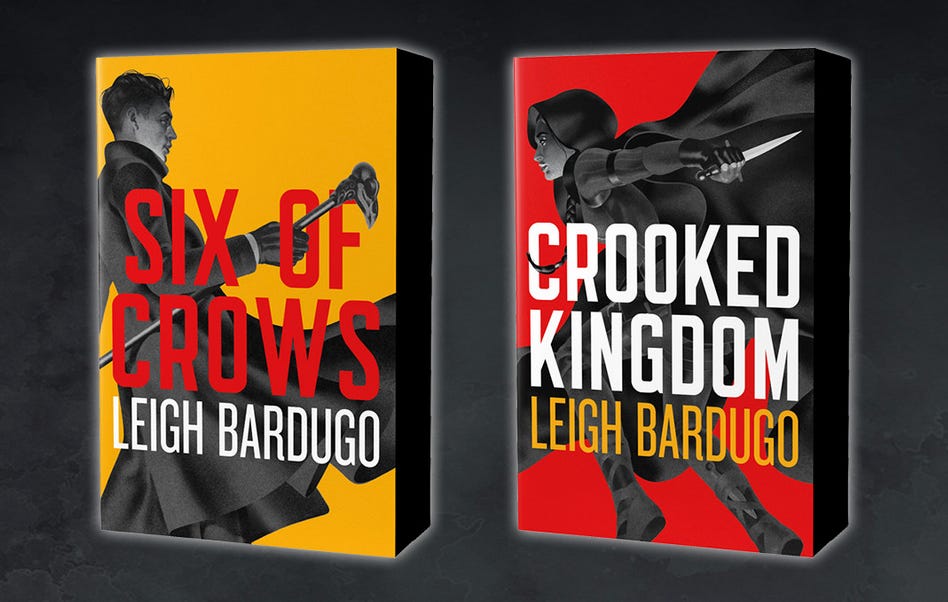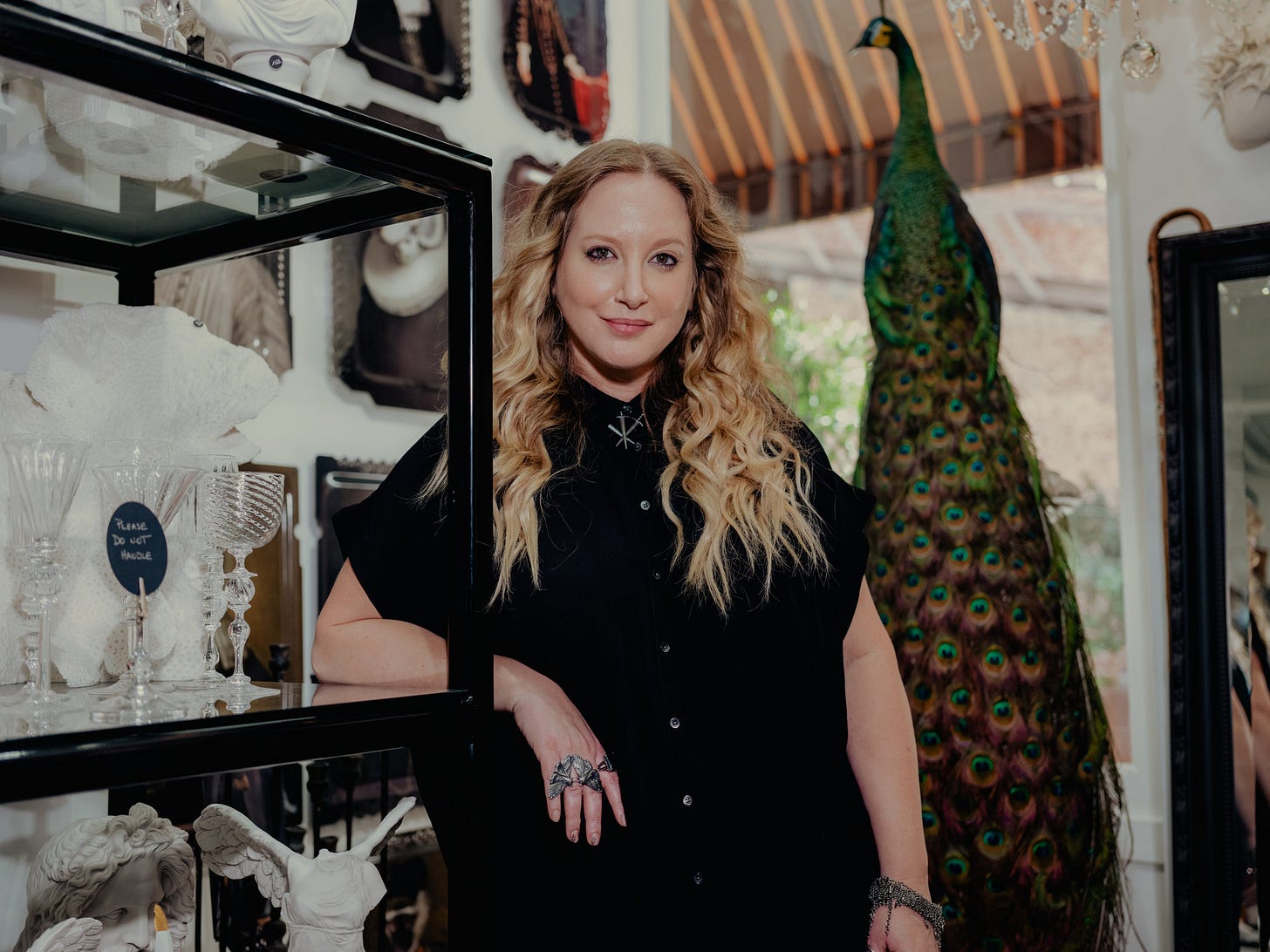Leigh Bardugo has built one of the most beloved catalogues in modern fantasy, from the Shadow and Bone trilogy to Ninth House. Now, with the release of the “Dregs” anniversary editions of the Six of Crows duology, readers have the chance to return to Ketterdam and rediscover why her work has left such a mark.
What makes Bardugo’s stories endure isn’t just the magic or the monsters, but the characters. They aren’t chosen by prophecy or bloodline, but carve their own destinies. In this short interview, Bardugo reflects on the non-fantasy influences that shaped her voice, the through-lines she notices (in hindsight), and the simple reading practices that keep her connected to the written word.
In my newsletter, I often explore how reading across genres and eras deepens our own relationship with books. What are the “non-fantasy” or “non-genre” authors who have most shaped your work, and how do they sneak into your pages?
Louise Erdrich has been a huge influence on me since I was first assigned one of her short stories to read as a kid. She was my introduction to magical realism and the way she builds connections among characters and across generations still blows my mind—these subtle touchpoints that you don’t even realize are building to something explosive.
Agatha Christie obviously knew her way around a twist, but she was also so funny. My favorite thing about her is the way she can establish a character in just a few highly judgmental sentences. I don’t know if either Erdrich or Christie sneak into my work, but I wish they would.
Are there authors within your genre(s) you especially look up to?
Tricky question. I’ve always been more interested in the work than the author. I remember reading the Foundation series and then discovering back matter Asimov had written that I found profoundly obnoxious. I instantly thought, “I wish I hadn’t read that,” because it shifted my relationship to his books and I developed a habit of skipping forwards or notes from the author. I don’t even like to see an author’s photo on a jacket. So, I think I admire the work rather than the author?
Throat clearing aside, only respect for anyone with a long career—Robin Hobb and Diana Wynne Jones come to mind. Stephen King, of course. Then there are the characters and worlds that somehow really enter our culture in a permanent way. I don’t know if Pennywise and Lestat will have the longevity of Hamlet, but to me that seems distinctly possible. That kind of impact doesn’t feel like something you can really aspire to, but I certainly envy it.
You’ve explored various sub-forms within fantasy and written a number of different series + standalones. Is there a through-line across your writing—a theme or two that you’re always thinking about when you’re diving into a new story?
It’s only when I look back that I see a pattern of survivors. Alina, Alex, Luzia, Inej—they’re all women who people consider expendable. They don’t have royal bloodlines. Their fates aren’t wrapped up in prophecy. They have to carve out futures for themselves. But no, I never start a book with a message in mind. I’m writing a novel, not a sermon. I usually discover what my characters are really trying to tell me somewhere in that first draft.
Many of my readers wrestle with how to fit reading into their busy lives. As a busy and very productive author, do you have your own reading practice that helps you sustain your relationship to the written word?
This isn’t romantic but my best advice is to take social media apps off your phone. I know I’m not creatively sustained or inspired by scrolling. I don’t believe anyone is. If you’re the exception, I congratulate you. But most of us close these apps feeling depleted and less focused. So, I made the conscious choice to ditch those apps and to sit with the discomfort of feeling restless or bored. The detox was miserable. But guess what? I started reading more.
I also try to stay connected to poetry and short fiction. That’s where I find some of the most exciting and surprising language. Plus it’s less of a commitment so I get to sample lots of new things and take more risks. It’s a tapas situation. Or maybe it’s like wandering through Costco and saying yes to all the free samples. Either way it re-engages the “why not?” impulse.


